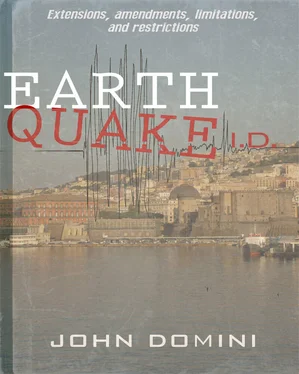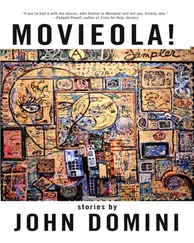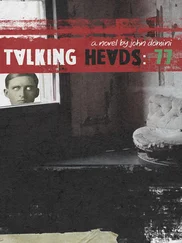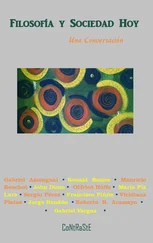She kept at it, be-with-us-now-and — and close enough to give the leper a kiss.
So another brand of hypocrisy began to gnaw at her: the way the African was dying. He’d been at his physical peak, a warrior, and his collapse had nothing to do with a gunshot or a virus, nor even the earthquake. Rather the owner of this human engine, fully operational as recently as when the Lulucitas had landed in Naples, had willed its breakdown. And wasn’t that how a person became a saint? They renounced the world and denied their own flesh? Barbara was holding the sweaty hand of a saint. Every time he gave a labored exhale, she shared his breath.
She’d blundered in here fuming over her family’s comforts, but these young radicals in the old castle, they were the ones who truly rejected the comforts. They embraced the end of everything.
“Some people set an example,” Dora said. “We should pay attention.”
“There are lots of people,” Sylvia said, “who don’t have our advantages.”
Chris, beside the girls, made some hushed reply. But what could the mother tell them, with this mocking skull-face beneath her? The African was himself what her prayer should be, and what’s more, the opposite of whatever Jay and Kahlberg were up to. Whatever those two had going, it was about good meals and the sweet life.
What could Barbara tell anyone? She straightened up, coiling her rosary.
She would’ve abandoned the young man faster — she needed time to herself, out of the ward — except as the mother lay the African’s hand back on his institutional blanket, he gripped her. The dreamer took hold with surprising force, the tendons popping along his shrunken wrist, the muddy sweat grinding into her palms. He never seemed to wake, exactly, but all at once he had her hand cinched tight.
What? How…? Barb was left with pinched knuckles, backing away. She stumbled past her children, towards the metal detectors.
Maddalena was the first to speak. “Signora Lulucita?”
Flexing her fingers, Barb hoped there wasn’t some sort of exit procedure.
“How are you, signora? You can talk to me. How do you feeling?”
And what was she going to do about the girls? Dora and Syl would want to come with. “I don’t know,” Barbara said, “I don’t know what to do about the girls.” She faced the camera, blinding herself again in the spotlight.
“Can you, Maddalena — would you watch them? My girls, that equipment of yours, who don’t you show them what you do with that, just for a minute or two?”
Barb didn’t look for the others. “Just, all of you — Paul, everyone. Please, could you give me a couple of minutes? I’m just saying, Mama needs a little time.”
The girls may have had questions: Mom? She couldn’t be sure, the way this sob gathered in her throat and clogged up her ears. Some third party may have put in a word, one of the patients maybe, encouraging the kids to stay. If Barbara heard the voice, it sounded the way her man’s last grip had felt.
John Junior was next. “Dora, Syl, hey. You know Mama. She’s got to find the Duomo and she’s got to have her Mama-time.”
JJ, lighthearted and able to deal. No wonder Romy had fallen for him. Still Barbara saw only glare-shadows, the same brown as the stains on the starving man’s cotton. She didn’t stop moving till the detectors’ tin skeleton loomed from the blur.
A chill, a hesitation. “I’ll be back soon,” she croaked. “You know Mama.”
Then she was into the hallway. She kept moving until all she could hear was the echo of her own gagging and spluttering, her moans and whimpers. The grief mounted from the gut and insofar as Barbara chose a direction, it was uphill, the opposite of the way they’d come. She needed unknown passageways and a place to cry. When at last she broke stride, she all but collapsed onto her knees. She slumped into a wall scrubbing her tears into her face, massaging her sockets and brows the way Jay did. God knows how long it took before the air tasted less of suicide and failure.
Eventually all she smelled was the tufa stone, and her head felt likewise porous. The building material, a thousand years old, in fact gave her a kind of comfort. It reminded her that she wasn’t the first woman to start with decent impulses and wind up in a mess. What she’d done by coming to the castle, lying the way she had, acting so selfish, was like having an affair. And back at the Sam Center she’d heard about more than a few affairs, always full of bruises.
Her eyes drying, clearing, Barb spotted an occasional cop on patrol. They weren’t letting I’ Americana run around unwatched. A couple of times she caught the shout of an excited eight-year-old (“Wow, try wide angle!”), not far off. She reached overhead, giving a lengthy, sighing stretch, then got her clothes adjusted and poked along the corridors, trying to think again through the morning’s plan. A couple of times she came up against a barred hallway or padlocked door. These gave her a pick-me-up, a touch of ordinary iron, suggesting she might not be a saint but possessed some reliable backbone herself. She still had strength enough to confront the tenente , Barbara. The scene in the ward — Mary, Mother of God — that would’ve upset anyone. But Kahlberg was bound to bust in any moment now, and she’d still gotten him at a disadvantage.
When she heard Jay, she couldn’t miss it.
From the first chewy syllable, more Queens than Brooklyn, she couldn’t miss it. She’d need to be a lot more lost than this not to recognize that voice. Barbara pulled up short on the poorly-matched flagstones, outside the room in which his complaining squawked and seesawed. She knew he was complaining too, she couldn’t mistake that either, after so many evenings spent nodding along with as much sympathy as she could muster. Her husband was talking in a small space, a room without an echo. He’d actually left the door ajar, behind him. From what Barb could see, peeking crook-necked, the Jaybird and whoever he was talking to had squeezed into a cubicle, a nook for a Norman archer. She saw too that she hadn’t escaped the castle’s surveillance grid: a video camera hung in a hallway corner.
“I know it’s partly my fault,” Jay said, more loudly. “I know. Hey, why else would I ask for confession?”
There was a reply, quiet, the accent very different.
“Well, I have sinned,” Barbara’s husband went on. “I’ve lied, number one.”
The confessor’s response again eluded her, sounding almost like a musical phrase. But her nerves enjoyed a dual awakening, from exercise and from amazement. In another moment she’d understood who the priest was too.
“I’ve lied,” Jay repeated, “but not that way. There’s been no adultery, father.”
“Cesare, please.”
Cesare, who else? Judging from what he’d told Barb, the priest would’ve preferred having his ministry down here, within wafer’s reach of the strikers.
“A couple of times,” Jay went on, “I’ve talked to women more than I should’ve. One woman anyway. But, hey. Barb knows all about it.”
Fresh heat rose in her face. For a moment she might’ve had Maddalena’s spotlight back in her eyes.
“She knows, it’s in the past. Happened when she was pregnant with the twins.”
The priest put in a word, again inaudible.
“Yeah, three kids and I wasn’t much past thirty. But that, hey, that was the idea. That sounded right to me.”
Another scrap of Irish melody.
“Yeah Paul was an accident. Came out of the blue, Mr. Paul. Still.”
Cesare, thought the wife, stop interrupting. Let me hear about his late inventory.
“Now that woman that time, I mean the other time, with the twins on the way. My hand on the Bible, on the eyes of my children, that was just talking.”
Читать дальше












